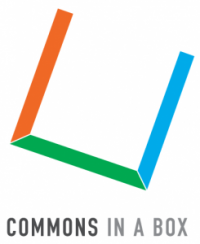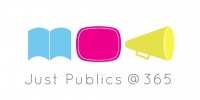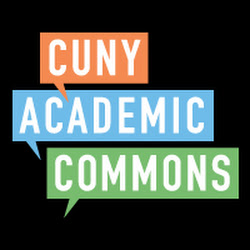The CUNY Academic Commons is an award winning online, academic social network for faculty, staff, and graduate students of the City University of New York (CUNY) system. ‘The Commons‘ as it is widely known has been compared to Facebook because like Facebook, its developers have a penchant for consistently ‘reinventing’ and ‘re-imagining’ its vision as a social network. It’s clear, however, that the website’s mission is to offer faculty, administrators and graduate students at CUNY a collaborative approach to examining and exhibiting the educational passions of its collective. Whether it’s for solving problems, partnering on projects and advancing scholarship – development has centered on providing the latest social-networking tools designed to foster conversation, collaboration, and connections among the 24 individual colleges that make up the university system. The site, founded in 2009, has quickly grown as a hub for the CUNY community, serving in the process to incubate and strengthen a growing group of digital scholars, teachers, and open-source projects at the university.
According to the CUNY Academic Commons developers: Members “seek to use the Academic Commons as a means of fulfilling our highest aspirations for integrating technology into our teaching, learning, and collaborating.” Take a CUNY Commons Tour.
We’ve created a page to a listing of some open and available Common’s blogs pertaining to course development, educational philosophies and the like. With apologies that not all the exceptional and well deserving blogs are listed just yet, we hope you will visit often for updates! Please send suggestions to fill the page to the editors!
CUNY.IS/LIVE 
Do you have an event that you would like to broadcast live on the internet? If ‘yes,’ then CUNY.is/LIVE may be the right
solution for you. Members of the Commons can request to use the stream at anytime for any event. How does it work?
 Commons In A Box (CBOX) is a free software project aimed at turning the infrastructure that successfully powers the CUNY Academic Commons into a free, distributable, easy-to-install package. Commons In A Box is a project of the City University of New York and the Graduate Center, CUNY and is made possible by a generous grant from the Alfred P. Sloan Foundation.
Commons In A Box (CBOX) is a free software project aimed at turning the infrastructure that successfully powers the CUNY Academic Commons into a free, distributable, easy-to-install package. Commons In A Box is a project of the City University of New York and the Graduate Center, CUNY and is made possible by a generous grant from the Alfred P. Sloan Foundation.
CBOX takes the complexity out of creating a Commons site, helping organizations create a space where their members can discuss issues, collaborate on projects, and share their work. ProfHacker posted a recent blog entry on Building Your Own Academic Community with Commons in a Box.
CUNY Hybrid Initiative Site  CUNY.is/hybrid
CUNY.is/hybrid
This CUNY Hybrid Initiative site is designed to be an open resource for everyone from new professors contemplating online teaching to students wanting to get the most out of their online learning experience. The resources and tools presented on the site are a culmination of ideas, suggestions, and best practices from the colleges that participated in the City University of New York’s Hybrid Initiative, which supported an increase in hybrid courses at these campuses. The overall goal of the initiative is to improve online learning outcomes while maximizing the use of resources to meet the needs of a growing CUNY student body.
A work in progress, the Hybrid Initiative site encourages contributions from members inside CUNY in the spirit of building and refining effective practices.
Open Access @Cuny 
The Commons is home to the Open Access @CUNY group, created by a team of CUNY library faculty who are interested in promoting Open Access materials for our libraries and who also publish their own scholarship openly with the goal to highlight and advocate for open access scholarship and publishing across the university.
 JustPublics@365 – “Reimagining scholarly communication for the public good”
JustPublics@365 – “Reimagining scholarly communication for the public good”
Just Publics@365 brings together media practitioners, academics, community leaders, policy advocates and digital activists to inspire informed public debate on issues of inequality and social justice.
The partnership between the Graduate Center of the City University of New York and the Ford Foundation seeks to rethink scholarly communication in the digital era. The project will equip academics with the digital skills necessary to communicate their research for a range of media, identify new metrics to measure the impact of networked scholarship, and forge productive links between scholars, media professionals, and political activists who address issues of inequality and injustice. The project was featured on the Chronicle of Higher Ed’s Wired Campus blog: “Social-Justice Researchers Meet Social Media in New Effort at CUNY.”
Open Journal Systems
A dozen CUNY journals are being published using the Open Journal Systems (OJS). The Urban Library Journal has migrated from print and subscription-based to an open access, online-only journal through OJS. The change has increased visibility of the title and streamlined the process of publishing.
Journal of Interactive Technology and Pedagogy (JITP)
Members of the Editorial Collective of JITP have establishing a new online and open access scholarly journal. The journal strives to be an interdisciplinary resource, drawing upon its 18-member “collective” to make decisions and create a space for new modes of scholarly writing and peer review. The mission of The Journal of Interactive Technology and Pedagogy is to promote open scholarly discourse around critical and creative uses of digital technology in teaching, learning, and research. You can find the complete statement on our website: http://ojs.gc.cuny.edu/index.php/itcp/index
LACUNY Emerging Technologies Committee
The LACUNY Emerging Technologies Committee provides information on upcoming technologies that, while not mainstream yet, could present a future avenue for higher education and librarianship. Open to all, this committee supports the mission with face-to-face meetings and presentations, as well as virtual interactions. This main purpose of this group is to enable communication and collaborative projects for CUNY libraries. [http://lacuny.org/committees-and-roundtables/committees/emerging-technologies]
Open Textbooks Wiki: https://commons.gc.cuny.edu/wiki/index.php/Open_Textbooks:_Getting_Started
Related OA groups: Open Access Publishing Network @ CUNY (OaPN @ CUNY) –https://commons.gc.cuny.edu/groups/oapn/
LACUNY Scholarly Communications roundtable –https://commons.gc.cuny.edu/groups/lacuny-scholarly-communications-round-table/
E-Books and E-Readers in the Libraries – https://commons.gc.cuny.edu/groups/e-books-in-the-libraries/
Open Education at CUNY – https://commons.gc.cuny.edu/groups/open-education-at-cuny/
The Academic Commons Wiki
The Academic Commons Wiki is a collaborative space located at the CUNY Academic Commons in which members can create and share resources. All pages on this wiki are public and can be edited by any member of the site. Please feel free to edit existing pages or to start new ones. The boxes on the right-hand side of the page provide links that will allow you to edit, discuss, and view the editing history of pages, find our nascent help system, and submit bug reports. And if you’re wondering what a wiki is, you can click here or check out our wikis and blogs page.
E-Portfolios @ CUNY Commons Wiki
Members of the CAT ePortfolio Subcommittee present cross-campus collaborative work that selects, collects, communicates, and analyzes information on the planning, piloting, implementation, and assessment of ePortfolios across CUNY. The analysis brings into focus “universal concerns.”
The City Tech OpenLab and Its Community: Fostering a Place to Learn, Work and Share
City Tech’s OpenLab is an open source digital platform for teaching, learning and collaboration for students, faculty and staff to use for courses, projects, clubs, and portfolios. Built by and for the City Tech community using BuddyPress and WordPress softwares, the OpenLab is a thriving online space. An Open Lab: Unlike closed online teaching systems, the OpenLab allows classes across the curriculum to communicate with one another and the world beyond City Tech. Like a lab, it provides a space where faculty and students can work together, experiment, and innovate. By City Tech, for City Tech: The OpenLab is being created for the City Tech community by a team that includes City Tech faculty, staff, and current and former students.
MOOC’s @ CUNY
A Massive Open Online Course or MOOC is a gathering of a massive number of people (often numbering in the thousands) who gather in an online interface to jointly exchange knowledge and network their learning experiences.
JustPublics@365 will also play host to a free massive open online course, or in this case, POOC (Participatory Open Online Course as they would like to have it known). This POOC is focused on East Harlem and the course is (as of February 2013) open for participation. Sessions will be facilitated by CUNY faculty members drawn from a range of social science and humanities disciplines, and will include a prominent list of intellectuals, activists, and experts drawn locally and from around the world, with unique expertise on various aspects of inequality.
What can East Harlem teach everyone? The dialogue will center around inequality in the 21st century. Simultaneously, this course intends to connect academic researchers, activists, and community members to discuss critical questions with regards to how new technologies can be used for community-engaged teaching and scholarship.
Whether MOOCS will fulfill its promise to change the world by providing open access to educate the world’s inhabitants and thereby disrupt the equilibrium of the rest of higher education is open for discussion, possibly within the historical context of educational technology, but their implications for everyday teaching and learning in higher education are only beginning to be realized.
In his CUNY Commons Blog entitled Envisioning Online Learning, Bruce Rosenbloom, Director of the Center for Excellence in Teaching and Learning at City College comments on MOOCs: “To have a high-quality course, offered online for a nominal cost, and be focused, laser-like, on student learning, is nothing short of revolutionary. Regardless of protestations to the contrary, traditional higher education is faculty oriented in terms of perks, schedules, teaching load, tenure, and many other factors. The idea that a massive online course, delivered to thousands of students worldwide, can be student focused, might strike some as a contradiction. Yet, for those willing to throw out all the old assumptions, structures, and excuses, it is the starting point for a major paradigm shift in the education of adult learners.”
Read more: http://www.insidehighered.com/news/2012/10/12/online-learning-group-hears-mooc-pioneer#ixzz2DRfmvZ2x
http://moocguide.wikispaces.com/4.+Designing+a+MOOC+using+social+media+tools
Benefits and challenges of a MOOC
Find free/open university courses online!




Recent Comments